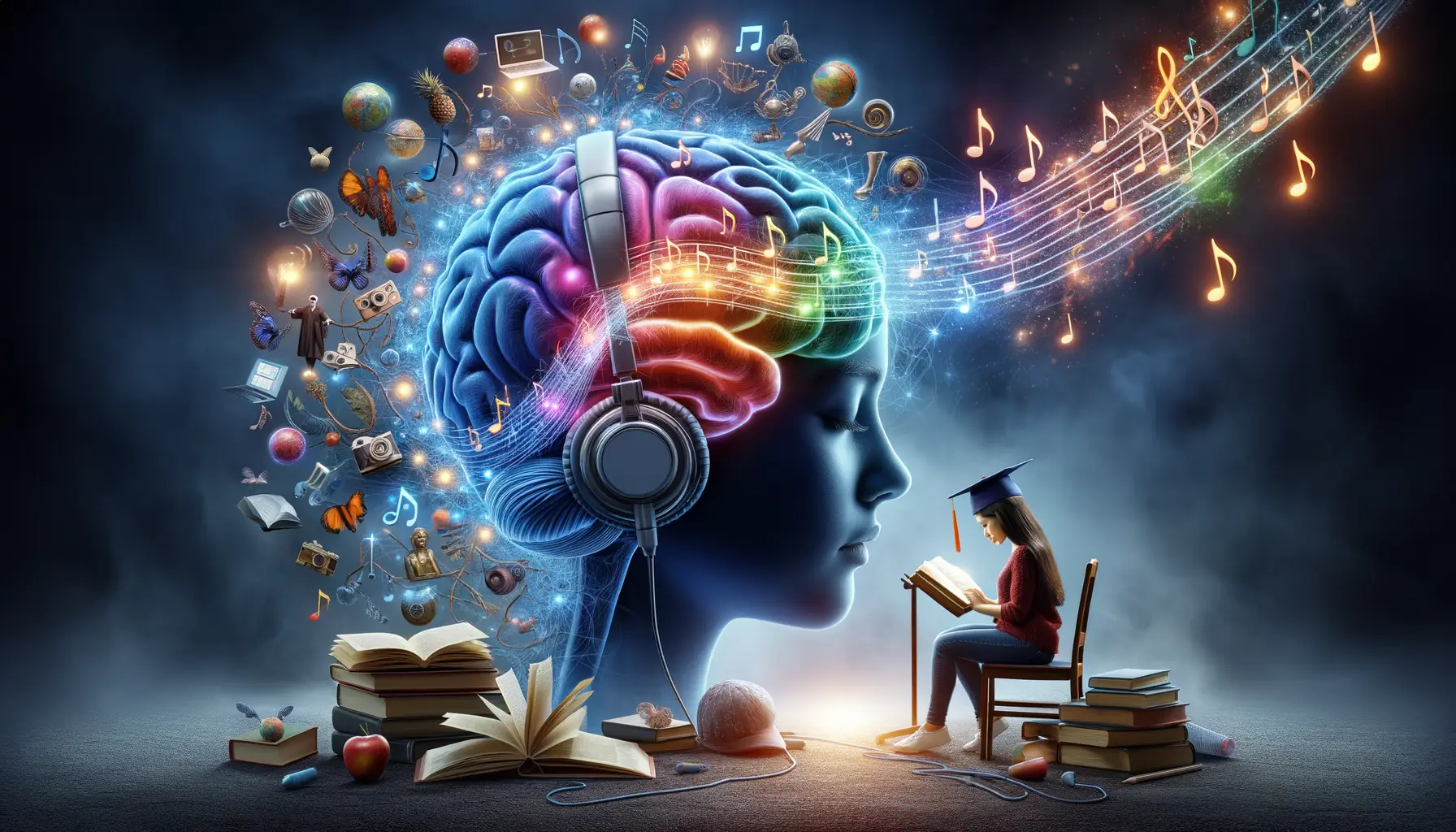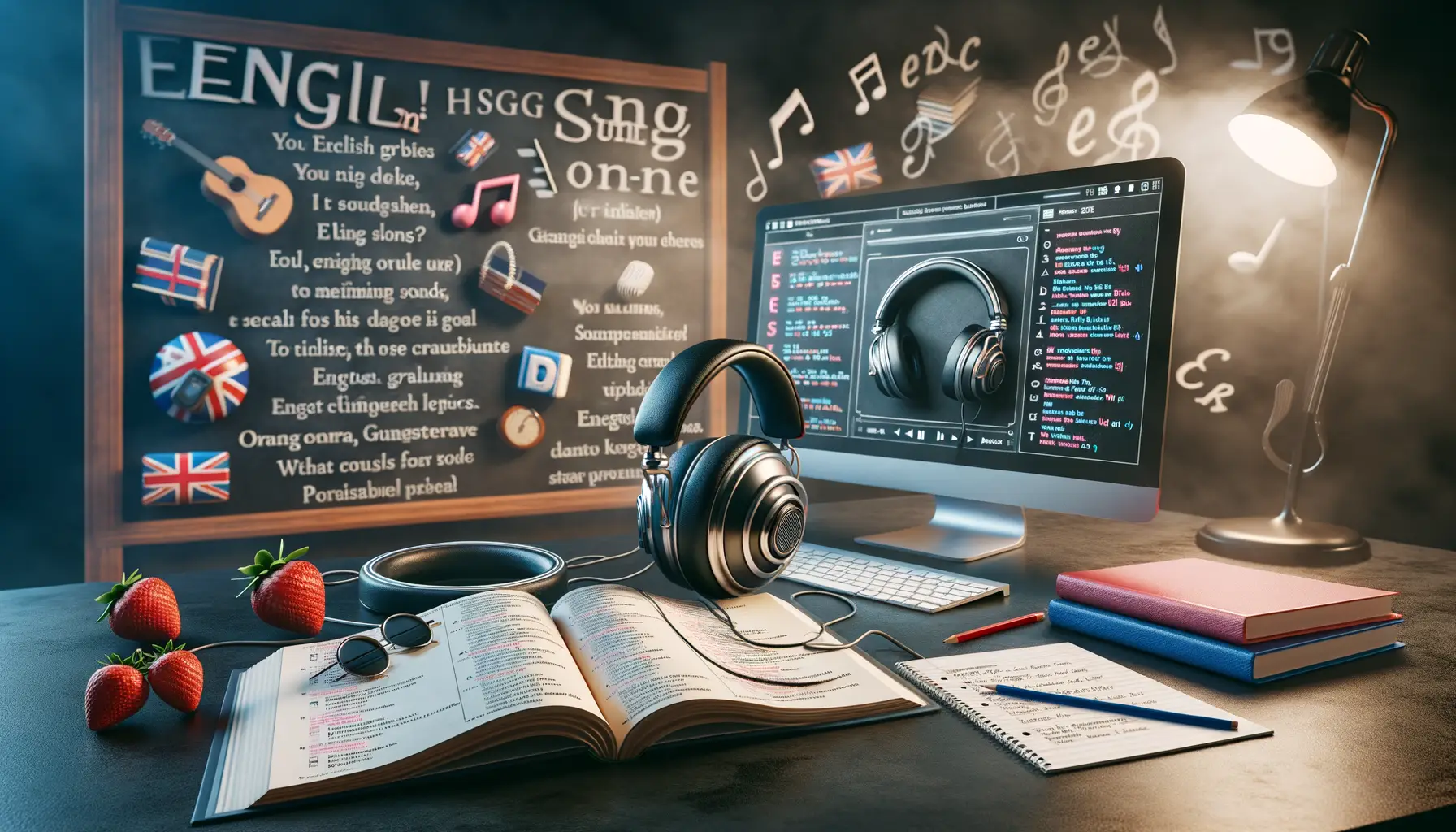Why Music is an Effective Tool for Language Learning
Unlocking Natural Rhythm for Language Learning
Ever felt the irresistible urge to tap your foot or hum along to a melody? That’s the magic of music—it hooks us emotionally and physically. What if I told you this same magic could make learning English feel effortless? Music is special because it doesn’t just stay in your ears; it sneaks into your memory, helps with rhythm, and even makes pronunciation easier to master.
Think about it: repeating a tricky word like “comfortable” can feel dull, but sing it in a catchy chorus? Suddenly, it sticks! Our brains thrive on patterns, rhythms, and repetition—all things music delivers naturally. Songs also expose you to real-life English, including slang, idioms, and even accents! Listening to Adele’s heartfelt ballads teaches entirely different nuances than vibing to Bruno Mars’ upbeat tracks.
- Emotional connection: Lyrics often tell stories, making words meaningful—you remember them because they touch you.
- Muscle memory: Singing along sharpens your tongue and improves articulation without feeling like practice.
Music doesn’t just teach; it transforms. When you blend learning with melodies, suddenly, it’s not studying anymore—it’s pure enjoyment.
How Music Enhances Vocabulary and Pronunciation

Building Vocabulary Without Even Realizing It
Ever caught yourself singing along to a song and learning new words without meaning to? That’s the magic of music! With every catchy chorus or heartfelt verse, your vocabulary starts expanding naturally—no endless flashcards or boring drills required. Songs are full of real-world language, from idioms to everyday expressions, giving you the tools to sound like a true native speaker.
Let’s not forget the emotional pull of lyrics. When you feel connected to a song, those words stick. Think about Adele’s “Hello”—how many people learned the phrase “a hundred times” just because that melody hit their soul? Music creates moments that stay with you, and along with them, the vocabulary settles deep in your mind.
Tuning Your Ears for Perfect Pronunciation
Pronunciation can be tricky, but music makes it less of a chore. Pay attention to how singers stress syllables or roll their “r’s.” Notice the rhythm in rap songs—it’s like a free master class!
- Soft ballads: Great for picking up subtle vowel sounds.
- Upbeat pop or dance tracks: Perfect for practicing strong consonants!
By mimicking singers, you’re essentially training your mouth, tongue, and ears to work together. Over time, you’ll hear and speak more naturally, almost as if each song rewires your speech patterns.
The Connection Between Music and Memory in Learning

Unlocking the Brain’s Musical Filing Cabinet
Have you ever had a song get stuck in your head for days? That’s because music has a special power: it slips into the brain and stays there, like a welcome guest at a party. When it comes to learning English, this “sticky” quality of music works wonders for memory.
Here’s why: your brain doesn’t treat music as just sound—it processes it as an emotional experience. Pair that with words or phrases you’re trying to learn, and suddenly, those new English expressions attach themselves to melodies you can’t forget. Imagine singing along to “Let It Be” by The Beatles and effortlessly remembering the phrase “let it be” next time you face a tricky situation.
Whether it’s nursery rhymes or pop anthems, music turns language learning into an unforgettable experience—quite literally. Think of songs as little memory capsules, ready to unlock whenever you need them.
Practical Tips for Learning English Through Songs

Sing Your Way to Vocabulary Gold
Want to supercharge your English learning? Dive into songs you can’t stop humming! Not only will you remember lyrics faster than textbook phrases, but those catchy lines are like little language treasure chests waiting to be unlocked. Here’s how to make the most of it:
- Choose songs with clear lyrics – think *Adele* over heavy metal growls. Yes, we’re looking at you, Slayer fans!
- Use lyric videos on YouTube! Watch them twice: once like karaoke night, and then again to catch new words.
- Pause and repeat tricky parts. Turn frustration into fun by mimicking the singer’s every breath and intonation.
When you’re singing along to a track, you’re doing more than just having fun. You’re practicing pronunciation, building rhythm in speech, and expanding your vocabulary without even realizing it. Why memorize “heart” and “ache” when *Coldplay*’s “Fix You” can groove it into your memory forever?
Turn Song Lyrics Into Your Personal Study Kit
Transform lyrics into flashcards! Highlight tricky words like “serendipity” or “bittersweet,” jot down their meanings, and try using them in conversations. And don’t skip songs you already know; translating lyrics into English is a phenomenal brain workout. Got a favorite in Spanish, Korean, or Italian? Look up its English version or cover—it’s like comparing two flavors of ice cream. Different, yet delightful.
And hey, don’t just listen—*feel* the song. Belt it out, dance like no one’s watching, and let the emotions sink in. The more connected you feel, the easier those words stick. Music is magic for the mind, and with the right song, you’ll hit every linguistic high note.
The Fun and Motivation Behind Learning with Music

Why Music Sparks Joy in Language Learning
Picture yourself belting out your favorite tune in the shower or grooving in your kitchen to a catchy beat. Feels good, right? That’s the magic of music—it doesn’t just entertain; it energizes! When we tie language learning to something as rhythmic and emotional as music, it transforms from a chore into a joy ride.
Music is like a secret ingredient that makes learning English irresistibly fun. You’re not drilling vocabulary or sweating over grammar rules—instead, you’re singing along to *Ed Sheeran* or dancing to *Dua Lipa!* The rhythm pulls you in, while the lyrics slip into your mind almost without effort. It’s sneakily effective.
- Think about karaoke nights: you’re practicing pronunciation without even noticing!
- Humming along to songs helps your brain absorb natural speaking patterns, accent and all.
Plus, there’s a unique sense of connection. Maybe you’re humming an English song a friend recommended, or laughing with classmates over silly lyrics. These small moments build not only your skills but also your motivation. Honestly, who wouldn’t want to learn this way?





